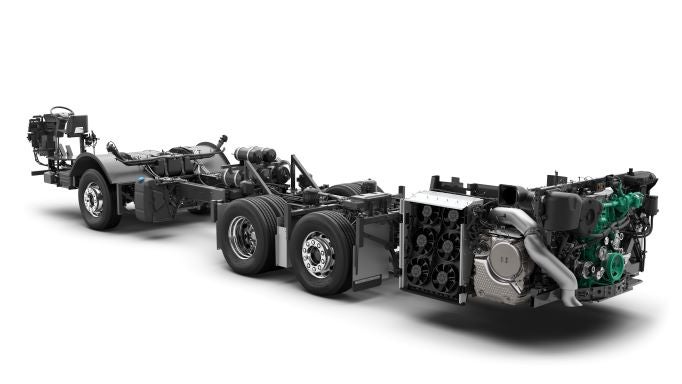
Volvo Buses said it had changed its Europe business model and consequently decided to close its body building factory in Wroclaw, Poland in 2024.
It would now “apply the same successful model as it has on several other markets” to focus on production of bus chassis on which external companies will build city and intercity buses and premium segment, long distance coaches, Volvo Buses said in a statement.

Discover B2B Marketing That Performs
Combine business intelligence and editorial excellence to reach engaged professionals across 36 leading media platforms.
The factory in Wroclaw would close during the first quarter of 2024.
“Volvo Buses has signed a letter of intent regarding the divestment of its premises to Vargas Holding,” the statement added.
“A restructuring provision of SEK1.3bn will negatively impact operating income in the first quarter of 2023.”
“Our business in Europe has been loss making for years. With this business model, that we already today apply successfully in many markets, we will improve profitability and secure our long term competitiveness,” said company president Anna Westerberg.
Volvo Buses would continue to offer European buyers a complete range of buses and coaches but now in partnership with “selected” external bodybuilders.
This would give the company “a leaner structure, improved flexibility, and the ability to better meet market requirements and customer demands”.
Full service and support services for current bus and coach operators would continue.
Volvo Buses’ said Vargas Holding would “re-purpose and gradually grow the production facility” in Poland and aimed to offer jobs to some current Volvo employees “as early as the third quarter of 2023”.
“Although Vargas Holding will operate in a different industry to ours, a key factor for them is the possibility to employ the experienced staff working in our organisation in Wroclaw needed for their establishment and future expansion,” added Westerberg.
The decision affects 1,600 Volvo Buses jobs with 1,500 in Wroclaw.
“Volvo Buses will do the utmost to support our loyal employees, many of whom have been employed for numerous years,” said Westerburg.
We will work together with Vargas Holding, local authorities and other parties to support people in finding new employment opportunities.”
The Volvo Group will nonetheless “continue to have a strong foothold in Poland” after the factory closure with 2,100 employees working at Trucks, Construction Equipment and in group support functions such as digital and IT, real estate, HR and accounting.
Factories in Sweden and Brazil producing chassis and the manufacturing of complete buses and coaches in Mexico and North America were not affected by the decision and would continue with production as normal.
Implementation of the new business model was expected to negatively impact revenues in Europe temporarily during the transition period 2024 through 2025.
As well as the restructuring provision of SEK1.3bn negatively impacting operating income in the first quarter of 2023, the expected negative cash flow effect was estimated at SEK1bn, of which the majority will affect 2024 results. However, once completed, the move to the new business model was expected to make the European bus operation profitable.






